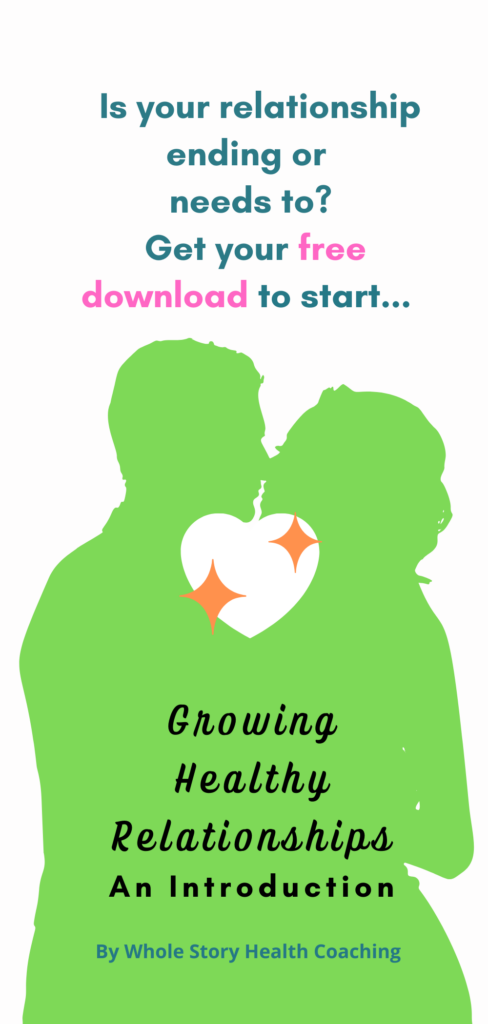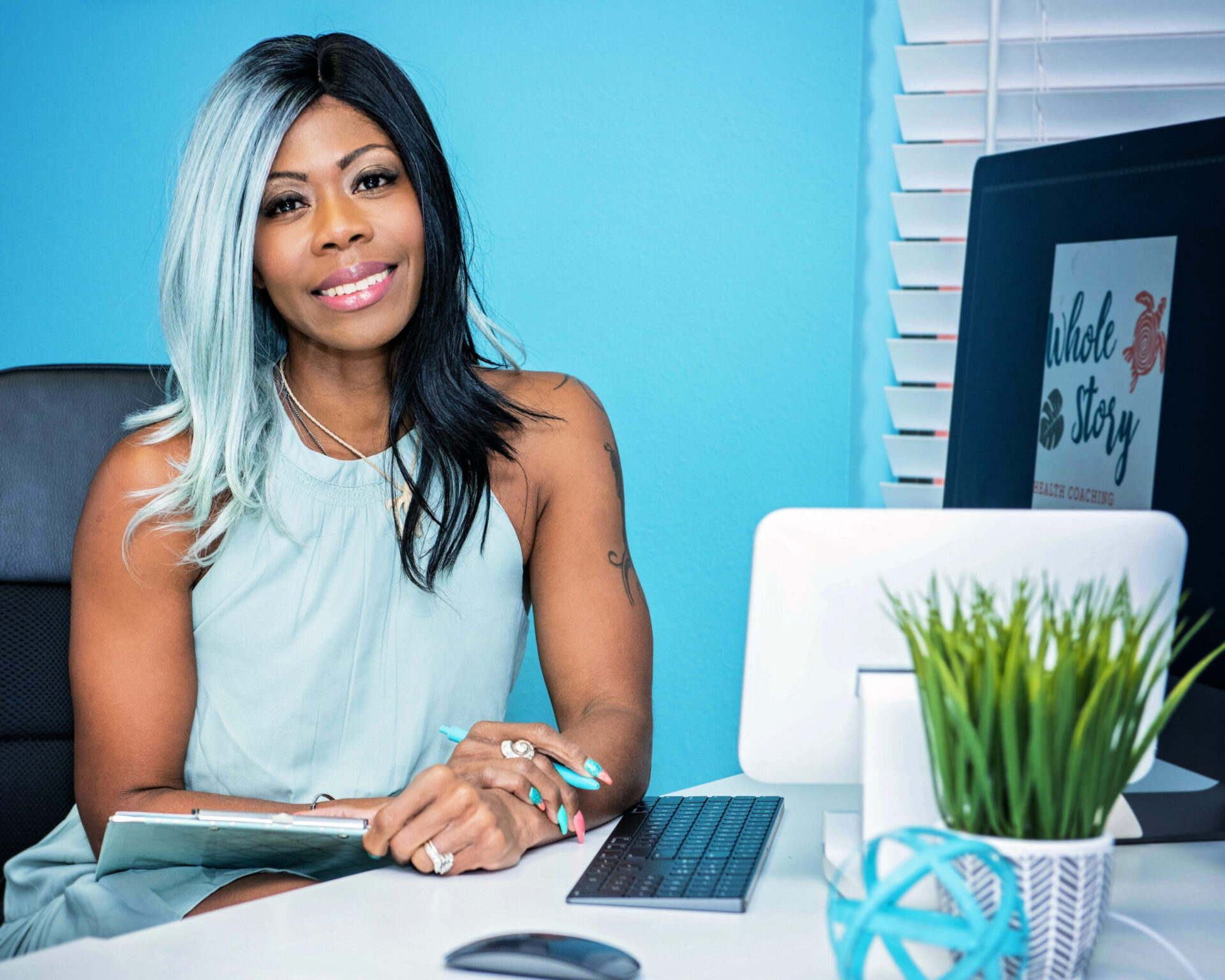Fall’s wonder is in its beauty and what it represents. The vivid colors demonstrate that change is a transformational process… bringing life to an end, while waiting for the next beginning.
As the seasons change, we can take the cue to re-examine and adjust our own life’s seasons…though, this may not always feel like the gift that it is.
People come into your life for a reason, a season, or a lifetime… –Unknown
No one (and nothing) is forever. We, and everything around us, are impermanent. This can be both a harsh and freeing truth.
Accepting that a relationship or friendship has ended can be a heartbreaking endeavor… especially if we had hopes of forever—or never imagined an ending.
A Painful Process
Sometimes we are blindsided. And, sometimes the signs were there…but instead, we only saw what was the most comforting.
Let’s think about that from the perspective of summer transitioning into fall. The leaves change from green to hues of red, orange, yellow, purple—and brown. We celebrate the seasonal beauty, but without focusing on the true essence of fall and the death of the leaves.
Our relationships and friendships can go through a similar process. Understanding and accepting what we are seeing (not just what we want to see) is key in being able to let go, heal, and move on to our next season of life—healthier and wiser.
In some unfortunate cases, we end up on emotional life support trying to sustain something that is meant to die.
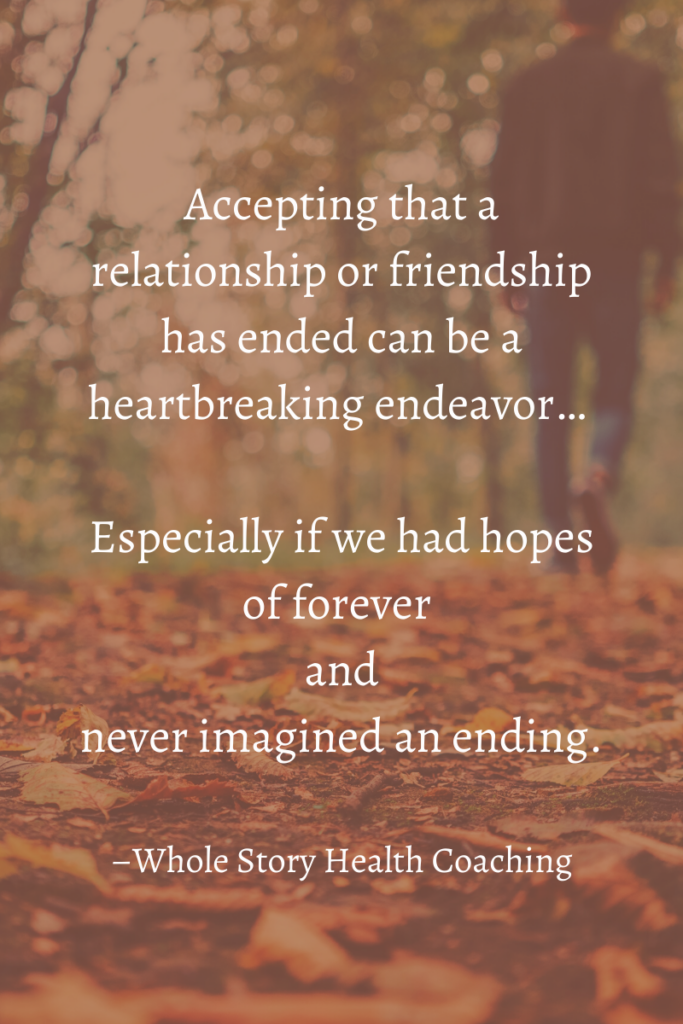
We find ourselves resisting impermanence and clinging to a future that isn’t ours to grasp.
Char Aukland
Letting Go: 6 Signs of a Dying Relationship
Look closely at the following list. If you notice these signs in your relationship, it may be time to re-evaluate it…and yourself.
1. Performing the equivalent of emotional CPR on a relationship
It can be hard to admit and accept that our relationship is not sustainable. At the point that we start to perform emotional CPR, we need to re-examine what we want and expect.
Start with what is going within you. There are likely several unresolved issues that are dictating your decisions, behavior, and the acceptance of remaining in a relationship that is slowly destroying you.
2. Continuing to pour into a bottomless emotional investment
This is a strategy that many attempt, in hopes that it will ultimately yield a big pay off .
It won’t.
What will happen is the continual draining of our emotional, mental, spiritual and physical energies.
Not only do these relationships not pour back into us, they leave us depleted and ineffective in our own ability to care for ourselves.
3. Discounting our wounds
When we don’t have a grasp of what is driving us towards these emotional cliffs, we can’t prevent it from happening.
In order to be proactive and empowered, we have to understand and acknowledge the effects of our wounds on our choices.
Denial of them is another mistake that keeps us stuck in emotional limbo.
4. Avoiding our pain
Not facing reality and cloaking ourselves in denial may help temporarily, but as long as we choose to distract ourselves from what’s really happening, we can be sure that we will continue in the same vicious cycles.
The faces may change, but the outcomes won’t.
Don’t be fooled, this isn’t about other people or what they’re doing to us—it’s about the people that we choose to allow into our lives and the behaviors that we choose to accept.
These are behaviors and habits that will continue until we face the hurt, anger, pain or wounds that are causing us to make all the wrong choices… for all the wrong reasons.
5. Overestimating our feelings and underestimating reality
Sometimes there are red flags that we can sometimes deliberately blind ourselves to.
We romanticize the happy times and potential happy endings, while ignoring the very obvious signs of incompatibility and an unsustainable relationship.
When faced with the truth, we convince ourselves that if we stay longer, love harder, or make the right sacrifices, then everything will turn out according to the way we feel it should.
The problem is that feelings can mislead us and take us down paths that ultimately lead to our emotional destruction.
While love may conquer all in the movies, real life is another matter.
Love is nuanced and goes beyond a feeling. It is also experienced differently by different people.
Relying on the powerful love of an over-willing partner is not a sustainable solution. We must, instead, base our decisions on the reality of the circumstances , including red flags, history, and patterns.
6. Undervaluing our worth…which lowers our standards
Lowered standards means that we will accept whatever comes our way, in exchange for companionship.
Because we don’t know that we are worth infinitely more than that, we allow the bare minimum.
In fact, we’re grateful for the handout.
This may be in the form of crumbs of attention or doing just enough to keep us on the hook.
Meanwhile, empty or broken promises stack up while we wait.
Unless we work on our growth and healing, this cycle can continue on indefinitely.
Remember, we must not only discover our worth, but invest in it.
Learning to be intentional about our boundaries, values, and standards will keep us from accepting less than we deserve.
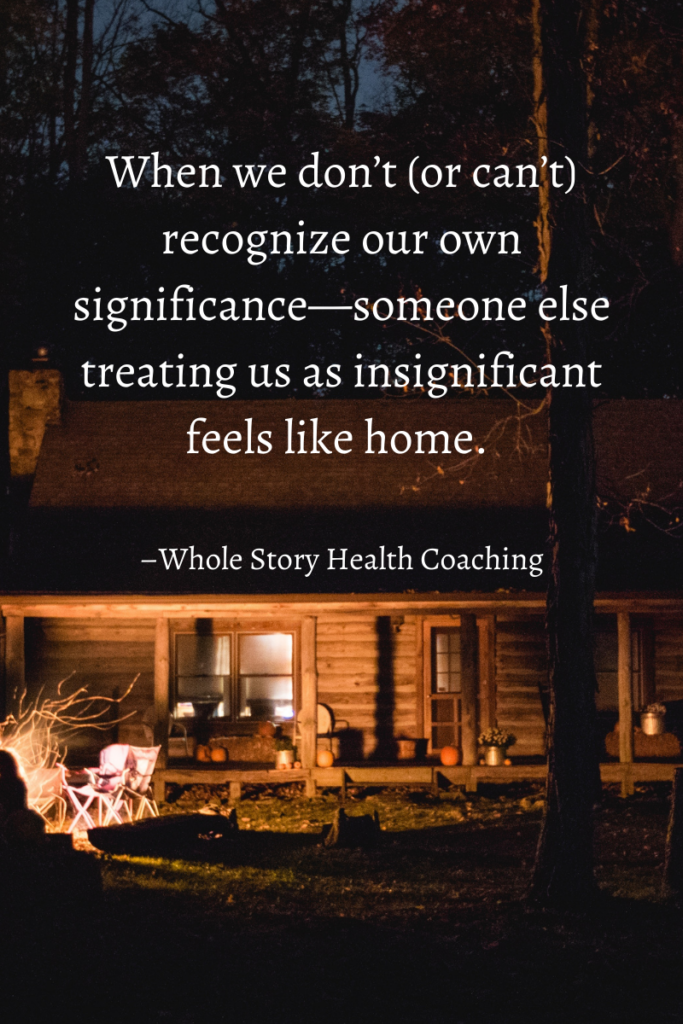
Admitting that we’ve been mentally and emotionally bruised beyond recognition is challenging. But, it is a challenge that we must undertake and overcome, if we hope to break free from our destructive patterns.
Char Aukland
How to Start the Healing Process
I created the following list as a guide to help steer you toward the painful process of healing.
Keep in mind that growth, development, grief, and healing are not linear processes.
They may also require more help than you can muster on your own. In some cases, a licensed and trained therapist may be an option to consider.
No matter how you decide to move forward, the goal is to move past your current challenges with knowledge and wisdom that will prevent you from returning.
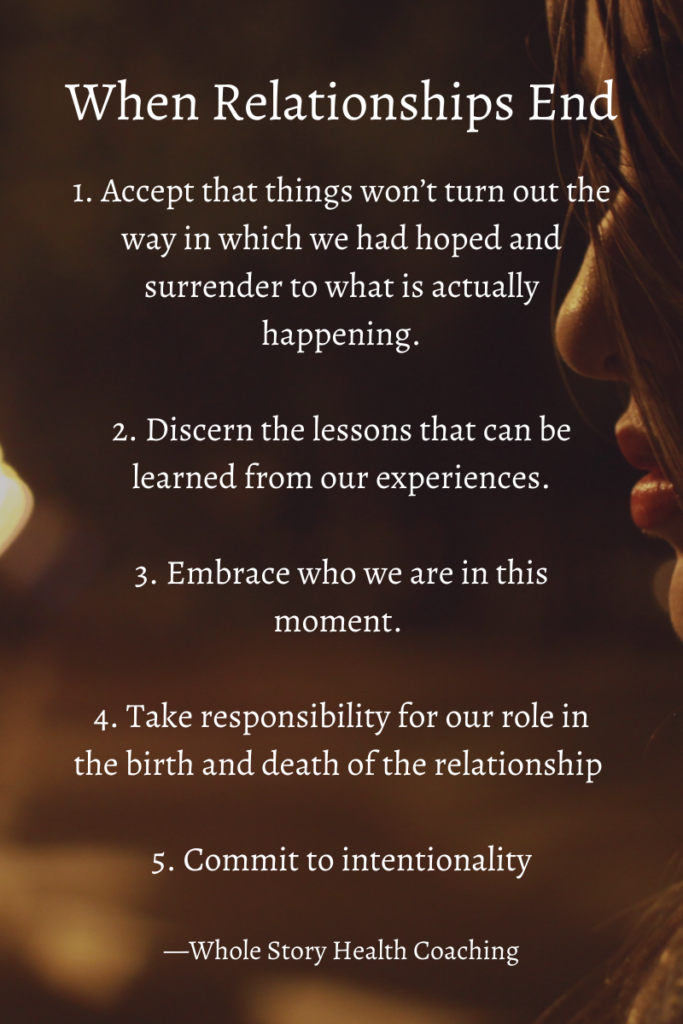
1. Accept that things won’t turn out the way in which we had hoped and surrender to what is actually happening.
This is where we have to confront our underlying fears and resist relying on denial and false hopes to get us through.
The only way to move forward is to accept that we will remain hopeless as long as we stay where we are.
While we are indeed giving up on the relationship, we aren’t giving up on ourselves.
In fact, we are rescuing ourselves from a life of victimhood. We’re taking back our power and proving to our inner being/child that we or capable of doing what it takes to be a whole and healthy person.
2. Discern the lessons that can be learned from our relationship
Whether for a reason, a season, or a lifetime, there are valuable lessons that we can take away from a past friendship or relationship. The key is asking the right the questions.
- Who was I when I chose this person?
- Which inner paths led me to choose this person?
- What hurts have been revealed?
- What fears have been uncovered?
3. Embrace who we are in this moment.
Our feelings, disappointments, and mistakes are all a part of the fabric of our being.
Everything that we have gone through up to this point has gone into why we do what we do.
Before we can move on from where we are, we need to embrace what that means for us — and the impact it has had on us.
4. Taking responsibility for our role in the birth and death of the relationship
This approach will give us insight into the changes we need to make in ourselves to avoid future recurrences of the same cycles.
Though we may not realize it, we are either attracted to or attracting very similar people and reliving the same hurtful patterns.
When we have the insight and courage to take responsibility for choosing to remain the same and choosing people that hurt us, we give ourselves control over our futures —a control that won’t result in destruction.
5. Committing to intentionality
A commitment to being intentional means that we are dedicated to showing up for ourselves and doing was in our best interest — to the best of our ability.
This doesn’t mean that we will be perfect and get everything right at all times.
It is simply asking ourselves to do the work that is necessary for our healing and forward momentum.
It is investing in our growth, instead of investing in a relationship or friendship that has gone past its expiration date.
The Relationship with Yourself: A New Beginning
The end of a relationship does not mean the end of you, your happiness, or your wellbeing.
On the contrary, you are getting a new beginning.
When you allow yourself the time and space to transform into a healthier, wiser person, you will only invite those people into your life that add to it, rather than detract from it.
Take the lessons learned and apply them as you move forward.


